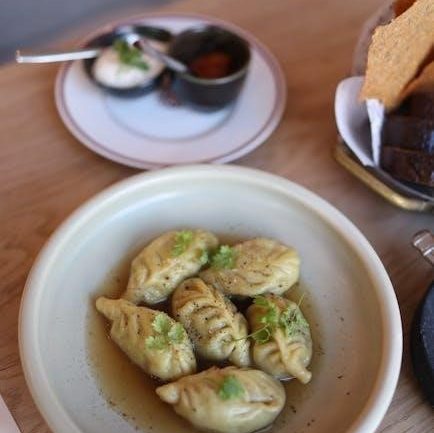The 16/8 intermittent fasting is a popular method involving an 8-hour eating window and 16-hour fast, promoting weight loss, improved heart health, and mental clarity effortlessly․
What is 16/8 Intermittent Fasting?
16/8 intermittent fasting is a time-restricted eating method where you fast for 16 hours and eat within an 8-hour window․ It’s a flexible approach that fits into daily routines, allowing you to choose your eating period, such as noon to 8 PM․ During fasting, water, herbal teas, and black coffee are permitted, but no calorie intake․ This method is popular for its simplicity and effectiveness in promoting weight loss, improving metabolic health, and enhancing mental clarity․ Unlike stricter fasting methods, the 16/8 plan is sustainable and adaptable, making it a great starting point for those new to intermittent fasting․
Why Choose the 16/8 Method?
The 16/8 method is a preferred choice for its simplicity and flexibility, making it easier to incorporate into daily life․ It allows for an 8-hour eating window, which can be tailored to suit individual schedules, ensuring social meals and personal preferences are maintained․ This method is less restrictive than other fasting techniques, making it more sustainable for long-term adoption․ By focusing on time-restricted eating, it promotes fat burning, improves metabolic health, and enhances mental clarity․ Additionally, it reduces hunger swings and supports a balanced diet, making it a practical and effective choice for those seeking weight loss and overall well-being without extreme dietary restrictions․
Benefits of 16/8 Intermittent Fasting
16/8 fasting enhances fat reduction, improves cardiovascular health, and boosts mental clarity, offering a sustainable approach to weight loss and overall wellness with minimal dietary constraints․
Weight Loss and Fat Reduction
The 16/8 intermittent fasting method is highly effective for weight loss and fat reduction․ By restricting your eating window to 8 hours, you naturally consume fewer calories, creating a calorie deficit that promotes fat burning․ During the 16-hour fasting period, your body depletes glycogen stores and begins utilizing stored fat for energy, leading to significant fat reduction over time․ This method also improves insulin sensitivity, enhancing your body’s ability to burn fat efficiently․ Additionally, the structured eating schedule helps regulate appetite and reduce overeating, making sustainable weight loss more achievable․ With consistent adherence, the 16/8 plan can lead to noticeable fat loss and improved overall body composition․
Improved Cardiovascular Health
16/8 intermittent fasting has been shown to significantly improve cardiovascular health by reducing inflammation, lowering blood pressure, and enhancing lipid profiles․ During the fasting periods, the body experiences reduced oxidative stress and inflammation, both of which are major contributors to heart disease․ Additionally, this method often leads to a reduction in triglycerides and LDL cholesterol, while increasing HDL cholesterol, further protecting the heart․ The structured eating window also promotes better insulin sensitivity, reducing the risk of developing type 2 diabetes, a major risk factor for cardiovascular complications․ Overall, the 16/8 fasting plan supports a healthier heart and reduces the likelihood of cardiovascular-related conditions․
Enhanced Mental Clarity and Focus

Practicing the 16/8 intermittent fasting method can significantly enhance mental clarity and focus․ During fasting periods, the brain enters a state of heightened alertness, improving concentration and cognitive function․ This is partly due to the increased production of a protein called brain-derived neurotrophic factor (BDNF), which supports brain health and neuronal function․ Many individuals report feeling more mentally sharp and alert, particularly during the fasting window, as the body adapts to using stored energy efficiently․ Additionally, the structured eating schedule helps reduce mindless snacking and promotes a sense of discipline, further contributing to improved focus and mental performance throughout the day․
Nutritional Basics for a Successful 16/8 Plan
Focusing on nutrient-dense foods like fruits, vegetables, lean proteins, and healthy fats is key․ Avoid processed foods and prioritize hydration during fasting periods for optimal results․
Key Foods to Include in Your Diet
Incorporate nutrient-dense foods like whole grains, lean meats, fish, eggs, and healthy fats such as avocados, nuts, and olive oil․ Vegetables and fruits are essential for vitamins and fiber, while protein sources like legumes and Greek yogurt support satiety․ Hydration is crucial, so drink plenty of water and herbal teas during fasting periods․ Avoid processed foods high in sugar and unhealthy fats, as they can hinder weight loss and overall health benefits․ Balancing macronutrients ensures sustained energy and optimal results during your 16/8 fasting journey․
Understanding Macronutrient Balance
Macronutrient balance is crucial for optimizing the benefits of the 16/8 fasting method․ Carbohydrates provide energy, proteins support muscle repair, and fats aid in hormone production․ Aim for a balanced intake of whole, unprocessed foods like lean meats, fish, whole grains, and vegetables․ Healthy fats such as avocados, nuts, and olive oil are essential for satiety and nutrient absorption․ Protein-rich foods like eggs, legumes, and Greek yogurt help maintain muscle mass and reduce hunger․ By focusing on nutrient-dense meals during your eating window, you can achieve sustained energy, improved health outcomes, and successful weight management while following the 16/8 intermittent fasting plan․

Meal Planning and Sample Menus
Plan balanced meals within your 8-hour window to maximize results․ Include protein-rich dishes, healthy fats, and complex carbs for sustained energy․ Sample menus often feature options like grilled chicken, fish, or tofu paired with vegetables and whole grains, ensuring nutrient-dense meals that support weight loss and overall health during your fasting journey․
Sample 1-Day Menu for 16/8 Fasting

- Breakfast (10:00 AM): Scrambled eggs with spinach, tomatoes, and avocado, paired with a slice of whole-grain toast․
- Mid-Morning Snack (11:30 AM): Greek yogurt with mixed berries and a sprinkle of chia seeds․
- Lunch (2:00 PM): Grilled chicken breast with a side of quinoa and steamed vegetables (broccoli, carrots, and bell peppers)․
- Afternoon Snack (4:30 PM): A small handful of raw almonds and an apple․
- Dinner (6:00 PM): Baked salmon with roasted sweet potato and green beans․
Stay hydrated with water or herbal tea during fasting periods to support overall health and reduce hunger․
7-Day Meal Plan for Optimal Results
- Day 1: Grilled chicken, quinoa, steamed broccoli; salmon salad with mixed greens for dinner․
- Day 2: Veggie omelet, sweet potato, green beans; turkey lettuce wraps with avocado․
- Day 3: Greek yogurt with berries; roasted turkey breast, cauliflower rice, and asparagus․
- Day 4: Smoothie bowl; grilled shrimp, zucchini noodles, and cherry tomatoes․
- Day 5: Scrambled eggs, spinach, and whole-grain toast; baked cod with roasted vegetables․
- Day 6: Cottage cheese with pineapple; grilled steak, mashed cauliflower, and Brussels sprouts․
- Day 7: Avocado toast; chicken stir-fry with brown rice and mixed veggies․
Pair meals with herbal teas or water to stay hydrated and support fasting benefits․

Tips for Sticking to the 16/8 Fasting Schedule
- Plan meals ahead to avoid temptation during fasting hours․
- Stay hydrated with water and herbal teas․
- Listen to your body and adjust the schedule if needed․
- Avoid distractions that trigger hunger․
- Be consistent to see long-term benefits․
How to Stay Hydrated During Fasting Periods
Staying hydrated during the 16:8 fasting periods is essential for maintaining energy levels and overall health․ Drink plenty of water throughout the day, aiming for at least eight glasses․ Incorporate herbal teas or black coffee for variety, as they are calorie-free and help curb hunger․ Avoid sugary beverages or alcohol, which can dehydrate you․ Consider adding a slice of lemon or lime to water for flavor․ Additionally, clear broths can be consumed if needed, though they should be low in calories․ Prioritize hydration consistently, and listen to your body to avoid dehydration-related fatigue or dizziness․ Proper hydration supports a smoother fasting experience․
Managing Hunger and Cravings
Managing hunger and cravings during the 16/8 fasting periods requires strategic planning․ Start by incorporating protein-rich foods, healthy fats, and fiber into your meals to keep you fuller longer․ Drinking water, herbal teas, or black coffee can also help suppress hunger pangs․ Plan your meals in advance to avoid impulsive eating․ When cravings strike, opt for low-calorie options like raw vegetables or a small handful of nuts․ Staying busy or practicing mindfulness can distract you from hunger․ Additionally, ensuring adequate sleep and managing stress levels can reduce cravings․ By focusing on nutrient-dense foods and staying hydrated, you can navigate fasting periods more comfortably and maintain adherence to your 16/8 plan․




